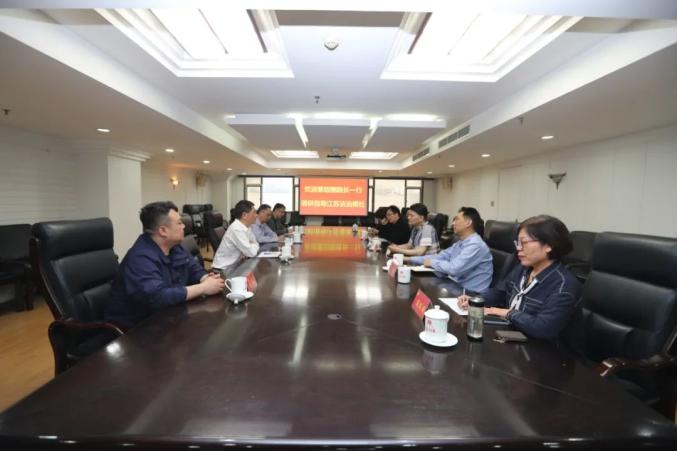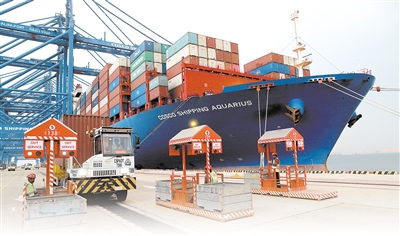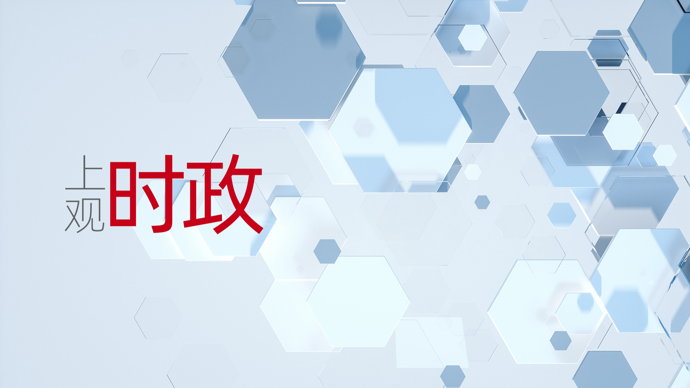The AB Side Of Septwolves: Earn 30 Million From Selling Clothes, 130 Million From Stock Trading
The AB Side Of Septwolves: Earn 30 Million From Selling Clothes, 130 Million From Stock Trading
Buying clothes is not as good as stock trading. "Investor Network" Attractiveness丨Han Yijia On September 25, Septwolves hit the daily limit shortly after the opening, reporting at 9.35 yuan per share, with a total market value of 6.59 billion yuan, gaining two consecutive boards. This is the second consecutive trading day for the stock. until close
Buying clothes is not as good as stock trading.
"Investor Network" Attraction丨Han Yijia
On September 25, Septwolves hit the daily limit shortly after the market opened, trading at 9.35 yuan per share, with a total market value of 6.59 billion yuan, earning two consecutive gains. This is the second consecutive trading day for the stock. As of the close of trading, the closing funds reached 110 million yuan.
And all of this stems from the recent "investment" actions of the Seven Wolves. In the first half of 2025, Septwolves' net profit reached 160 million yuan, while it only earned less than 30 million yuan from selling clothing, and its stock investment income reached 130 million yuan. A men's clothing company has made more money than its main business by relying on its "stock trading" skills, which can't help but attract the attention of the market.
At noon that day, Septwolves stated on the interactive platform that the company has not invested in Moore Thread and Yushu Technology, but after inquiries, the company's parent company indirectly holds part of the equity of Moore Thread and Yushu Technology. Septwolves emphasized that the investment by the company's parent company is a financial investment at the controlling shareholder level and is not directly related to the company's main business and will not have an impact on the company's operating performance.
From the former men's "jacket expert" to today's hot spot in the investment market, what paths have the Seven Wolves traveled?
How can there be any stock trading in selling men's clothing?
Septwolves is one of the leading men's clothing brands in China, mainly engaged in the design, production and sales of "Septwolves" brand men's clothing and knitted products. At that time, with the advertising slogan "A man has more than one face", he successfully introduced the jacket product into the market, and also relied on the jacket category to occupy the first market share in this category for 25 years.
However, in recent years, Septwolves is no longer busy making jackets, but has begun to transform into "industrial investment". Around 2015, the A-share market was experiencing a period of rapid growth. Under the general atmosphere of "national stock speculation" and the sluggish development of the clothing industry at that time, Septwolves also faced pressure on net profits. Therefore, this men's clothing company decisively decided to shift from "pure industry" to a "industry investment" two-wheel drive model, and diverted 1 billion yuan of funds originally intended for online marketing projects to investment activities.
At that time, the Seven Wolves had a large cash reserve and hoped to improve the efficiency of capital use through investment rather than simply using it for industrial expansion. In 2016, Septwolves established Qianhai Reinsurance Co., Ltd. and obtained a business license to further expand the field of financial investment.
In 2022, its property management platform Henghe Property will establish a number of wholly-owned subsidiaries to continue to deepen its investment layout. By 2024, investment income will account for 74% of the net profit attributable to the parent company, and the gains and losses from changes in fair value will be significant, indicating that investment has become an important support for performance.
Judging from the companies in which Septwolves hold stocks, their investment portfolio is biased towards A-shares and large-cap blue-chip stocks in the Hong Kong stock market. Almost all of them are concentrated in leading companies in various industries, reflecting a relatively stable investment style that values long-term value. Data show that as of the end of June 2025, the total number of stocks held by Septwolves reached 1.44 billion yuan. Breaking down its investment territory, it covers the A-share and Hong Kong stock markets. The investment list includes Tencent Holdings, Ping An of China, Kweichow Moutai, CATL and many other star stocks. Among them, one Tencent Holdings stock alone contributed approximately 55 million yuan in investment income to the company.
Regarding the voices in the market commenting on Septwolves' enthusiasm for "stock speculation", its staff also told relevant media that when the company invests in the secondary market, it will also pay attention to whether the business is synergistic with the company's main business, and the company still focuses on the clothing business. In 2025, Septwolves also stated that it will promote the "industrial investment" strategy, adopt the "fixed income replacement" strategy to allocate stocks, and integrate excellent resources in the fashion consumer industry.
From an industry perspective, many men's clothing companies seem to be keen on "stock speculation." Men's trousers expert Jiumu Wang expects net profit to increase by 200% to 260% in the first half of 2025, of which gains from changes in fair value will increase by approximately 130 million yuan year-on-year; Li Rucheng, the founder of Youngor, is even known as "Ningbo Buffett". He bluntly said that "the money you can make from investing in real estate and the stock market is more than you can make in 30 years of making clothing."
Although investment has become a "standard option" for some companies, the instability of the capital market has always buried "landmines" for development. Once the stock market enters a downward cycle, these companies that rely on investment income will still need their main business to "transfuse" to survive.
Can an old jacket be given a new lease of life?
Behind the good news of investment income, Septwolves' main business is facing all-round challenges. From channel efficiency to product competitiveness and brand influence, they all show aging and fatigue.
The 2025 semi-annual report shows that during the reporting period, the operating income was 1.375 billion yuan, a year-on-year decrease of 5.93%; the net profit attributable to shareholders of the listed company was 160 million yuan, a year-on-year decrease of 13.93%; the net profit attributable to shareholders of the listed company after deducting non-recurring gains and losses was 29.1063 million yuan, a year-on-year decrease of 61.35%; basic earnings per share was 0.23 yuan.
Not only that, in the first half of 2025, the company's net cash flow from operating activities plummeted 245.21% to -22.6 million yuan, indicating that the hematopoietic capacity of the main business is seriously insufficient.
Septwolves once occupied the top position in the men's clothing market as a "jacket expert". However, the 2025 semi-annual report shows that the core category of outerwear revenue accounts for only 17.72%, which is lower than T-shirts (22.64%) and underwear (26.07%). Behind this change in data, it reflects the serious disconnect between Septwolves’ brand positioning and actual needs.
Looking at different channels, online revenue was 489 million yuan, a year-on-year decrease of 5.27%, but the gross profit margin increased by 2.56 percentage points to 44.02%. However, online channels face the problem of high return rates. Among them, Tmall’s return rate is as high as 50.43%, and Douyin’s return rate is as high as 58.9%.
Septwolves' weak growth is also reflected in the imbalance in store strategy. As of the end of June 2025, the company's number of directly operated (including jointly operated) stores reached 847, a net increase of 45 stores compared with the same period in 2024; however, the number of franchise stores dropped sharply from 1,006 to 875, a net decrease of 131 stores. This drastic change in channel structure reflects the Seven Wolves' anxiety about channel control and also brings about a series of problems.
In the first half of 2025, revenue from offline direct channels increased by 17.12% to 463 million yuan; revenue from franchise channels dropped by 28.77% to 270 million yuan. This sudden drop is not only due to the company's elimination of substandard stores, but also reflects franchisees' lack of confidence in the brand's prospects. In terms of average store efficiency, the average operating income of directly-operated old stores decreased by 3.93% year-on-year. In terms of regions, revenue in East China was 835 million yuan, accounting for 60%, a year-on-year decrease of 1.81%; South China increased by 9.66%, and Central China decreased by 17.12%.
What is even more worrying is that the company's inventory turnover days have been extended to 220 days, an increase of 23 days compared with the same period in 2022, and the amount of inventory goods is as high as approximately 1.189 billion yuan. In order to digest inventory, Septwolves had to increase promotional efforts, which put pressure on gross profit margins and formed a vicious cycle. In addition, the company made provision for asset impairment of RMB 59.6642 million in the first half of the year, of which inventory impairment amounted to RMB 60.6481 million, reducing net profit attributable to the parent company by RMB 45.5739 million, which directly eroded the company's profitability.
In terms of innovation, Septwolves’ R&D investment is also insufficient. In the first half of 2025, Septwolves' R&D expenses were only 19.1 million yuan, a sharp decrease of 41.98% year-on-year, and the R&D rate dropped to 1.39%. This is in sharp contrast to the R&D investment level of 5% to 8% of international men's clothing brands, which is even lower than that of its domestic counterpart Xiangniao (2.1%). Insufficient investment in R&D directly leads to stagnation in product innovation. New products launched in the first half of 2025 lack breakthroughs in fabric technology and functional design, making it difficult to arouse consumers' sense of freshness.
On the other hand, Septwolves' transformation has also suffered setbacks in the past few years. In 2017, Septwolves spent 320 million yuan to acquire the affordable luxury brand Karl in an attempt to enter the high-end market. But as of the first half of 2025, the brand's cumulative losses reached 223 million yuan, and its net assets were -87.53 million yuan. What’s even more paradoxical is that about 70% of its 54 stores are located in third- and fourth-tier cities, which is a significant departure from the industry practice of focusing on the core business districts of first-tier cities for affordable luxury brands, resulting in a serious misalignment of brand positioning and channel layout.
The operating difficulties of Septwolves are not an isolated case, but reflect the common challenges in the traditional business men's clothing industry. As the structural changes in the consumer market accelerate, the demand for clothing from young consumer groups such as Generation Z is changing from traditional business formal wear to casual, trendy and scene-oriented clothing. This transformation has caused traditional men's clothing brands represented by Septwolves to face severe challenges of compressed market space. (Produced by Thinking Finance)





